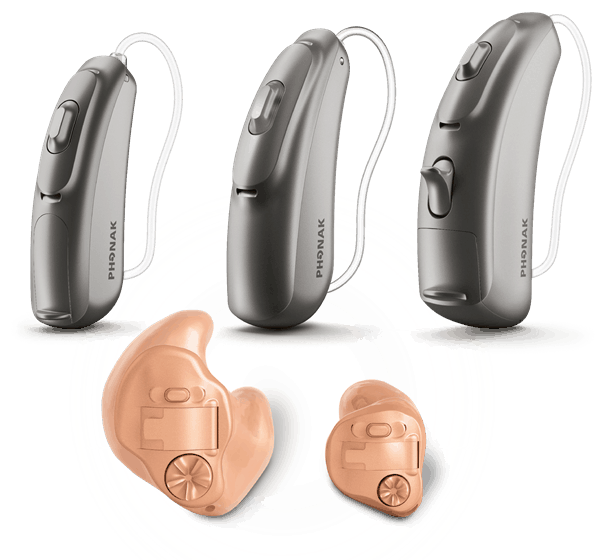Tinnitus Treatment
Tinnitus affects about 1 out of 10 adults in the US.
- Insomnia
- Emotional difficulties
- Social difficulties
- Workplace difficulties
- Decreased quality of life
What is Tinnitus?
In the near totality of cases, tinnitus is “subjective,” meaning that only you can hear it. Sometimes it can be so loud that it interferes with normal hearing, or becomes so distracting that you cannot concentrate. It may happen constantly, or it may come and go. Sometimes it may increase in volume for a moment and then decrease again, or go away for a while.
Tinnitus is usually experienced as “ringing in the ears.” Most people experience a high-pitched tone that may come and go throughout the day, but tinnitus can take a number of forms including:
- Clicking
- Buzzing
- Roaring
- Humming
- Hissing
What Causes Tinnitus?
In most cases, the cause of tinnitus is not found. There are a number of potential causes including hearing loss, blockage in the outer or middle ear, head or neck injuries, high stress, certain medications, and TMJ issues. You may be able to identify that your tinnitus is related to TMJ or another “mechanical” cause by conducting the following test:
- Find a relatively quiet place, or a place with steady but quiet background noise.
- Hold the palm of one of your hands against your forehead.
- While keeping your palm in place, press your forehead against it. Hold your palm firmly in space, as though it were a wall, using your head and neck muscles to press your forehead forward.
If your tinnitus becomes louder while you’re doing this test, it is likely that there is a mechanical cause. It could be that your tinnitus is caused by clenching your jaw while you sleep, for example. A specialist may help you address the underlying cause, potentially alleviating or reducing your tinnitus.

When Is Tinnitus a Problem?
For many people, tinnitus may always be present but go unnoticed throughout the course of a day. If your tinnitus is relatively mild, you may notice it when there is not a lot of other sound around, but never hear it at all while you are in the course of your routines.
For most people who experience tinnitus, bedtime is the most difficult part of the day. When you’re trying to fall asleep and your ears are presenting you with sound in an otherwise quiet room, it can be very frustrating. Even if your tinnitus is severe, there are some things you can do to make it easier to live with it.
How to Treat Tinnitus
“Masking” is the most common type of tinnitus treatment. While tinnitus itself does not tend to mask sounds in the world, it is easy to introduce sounds into the world that can mask tinnitus.
You can mask tinnitus by turning on a fan, loading an online video of a static type of sound (a crackling fire, for example), setting your television to play a familiar show, or otherwise introducing sound that doesn’t distract you. The key is to introduce sound into your environment that covers up the sound of tinnitus but doesn’t occupy your mind: Something you can hear but not something you must listen to.

All major hearing aid manufacturers offer the option of a “masking tone” with their hearing aids. While hearing aids are only recommended for those who have hearing loss in addition to tinnitus, they do provide an excellent means of masking. The masking sound can be turned on and off at the wearer’s discretion, and it is psychoacoustically tuned to be effective at masking yet unobtrusive to incoming sound from the environment.
William Shatner has had tinnitus since there was an unexpected pyrotechnic explosion on the set of Star Trek. Decades later, he says that masking is the only way he gets any relief.
If masking is insufficient for your tinnitus, meditation has been highly recommended, and specific programs of meditation have been developed to specifically address tinnitus. The goal in this instance is to help you understand your tinnitus in such a way that you can be less bothered by it, even if you are unable to cover it up.
If you are frustrated by tinnitus, contact Ashland Audiology today and we will help you find the best way for you to minimize the impact of tinnitus on your life.
Ashland
1901 Beaser Ave.
Ashland, WI 54806
Phone: (715) 682-9311
Fax: (715) 682-9313
Office Hours:
Monday - Thursday: 8:00 am – 5:00 pm
Friday, 8:00 am - 4:00 pm
Hearing Aid Clean & Check Hours:
Monday - Friday:
8:30 am – 3:30 pm
*Please note that the office will be closed from 12-1 pm daily for lunch. A secure drop box is available to drop off hearing aids during this time.
Hayward
Hayward Area Memorial Hospital - Specialty Clinic
11040 N. State Road 77
Hayward, WI 54843
Located in the Medical Outreach Clinic in the Heritage Building
Phone: (715) 682-9311
Fax: (715) 682-9313
OFFICE HOURS:
Every Tuesday 9:00 am - 3:30 pm
Hearing Aid Clean & Check Hours:
Call our Ashland Office to schedule an appointment to have your hearing aids cleaned.
Ironwood
Aspirus Ironwood Clinic
N10565 Grand View Lane
Ironwood, MI 49938-9622
Located on the 2nd floor of the Aspirus Ironwood Clinic
Phone: (715) 682-9311
Fax: (715) 682-9313
OFFICE HOURS:
Every other Wednesday 9:00 am- 3:30 pm
Hearing Aid Clean & Check Hours:
Call our Ashland Office to schedule an appointment to have your hearing aids cleaned.
